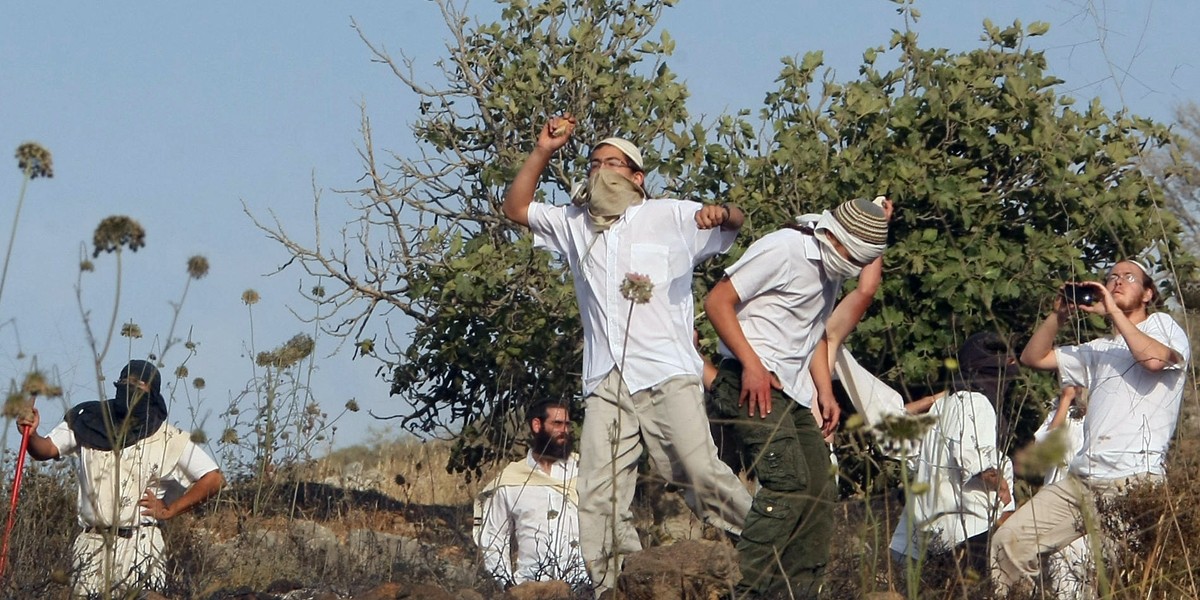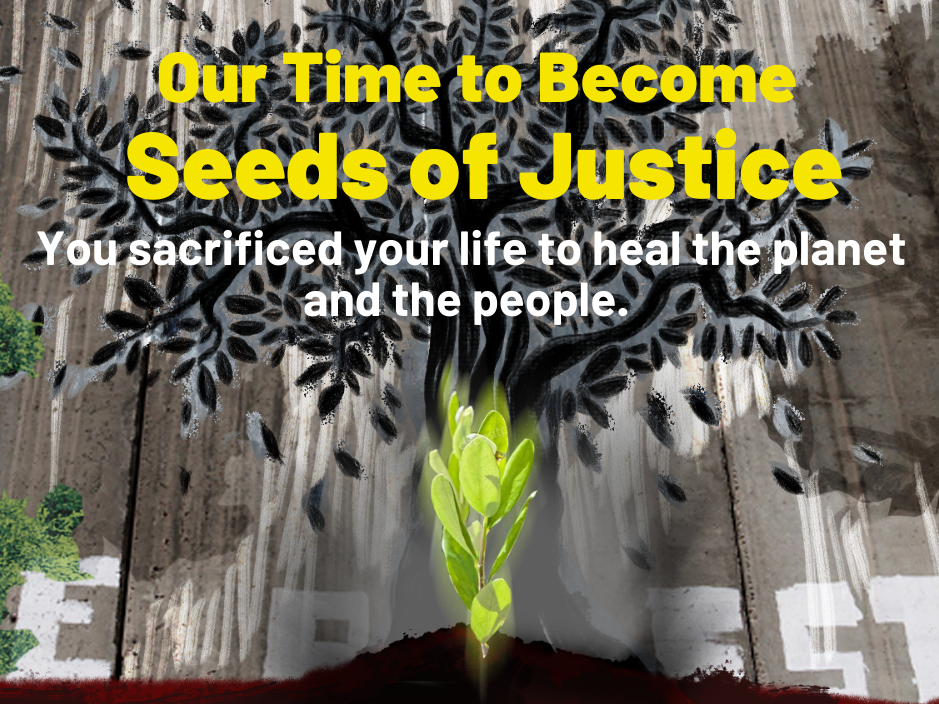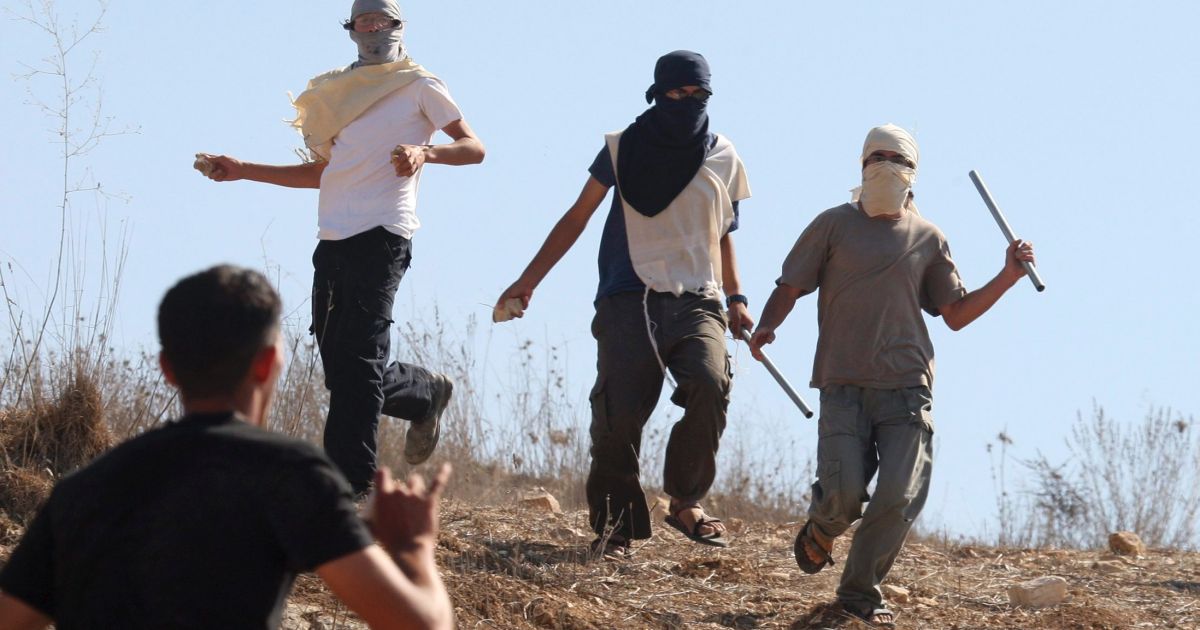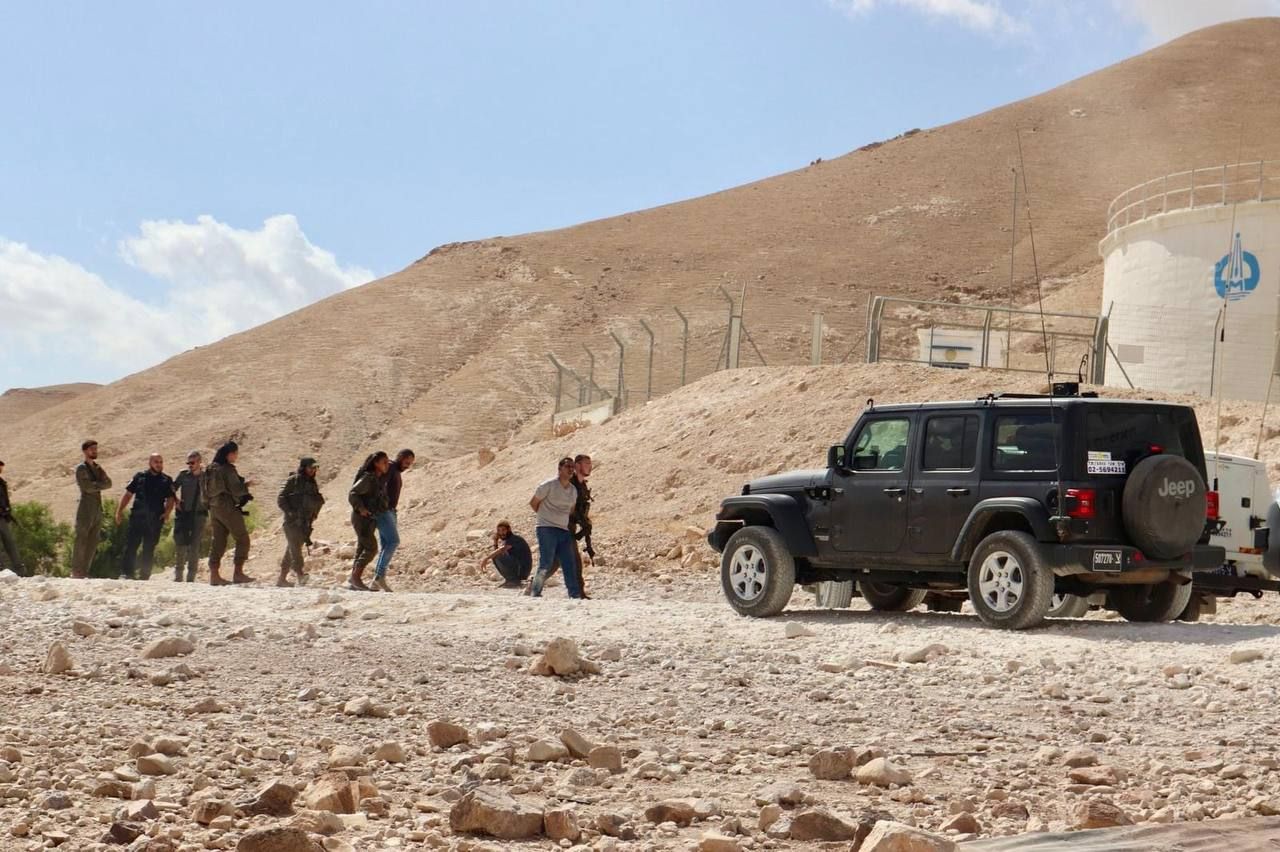A total of 706 cases of assault by armed settler militias, protected by the Israeli apartheid forces, have been documented against Palestinian farmers. The incidents included the following:
- The killing of farmer Hanan Salama, 59, from the town of Faqoua, Jenin Governorate: A settler shot her in the head while she was harvesting olives, killing her in cold blood.
- The assault on farmer Ahmad Abdullah Tawfiq Ghazal, 68, from the town of Sabastia: Settler militias attacked him with toxic gas and physically assaulted him during the olive harvest. This caused brain hemorrhaging, leading to his death.
- The burning and uprooting of 1,450 olive trees in the towns of Burqa, Qaryut, Sinjil, and Yasouf.
- In 210 incidents, settler militias prevented Palestinian farmers from harvesting olives. Farmers were denied access to approximately 50,000 dunams of olive orchards, including in the towns of Sinjil and Turmus Aya. In Turmus Aya alone settlers cut Palestinian farmers off from about 23,000 dunams, containing over 7,500 ancient olive trees, in addition to other fruit trees.
- The theft of olives from over 5,500 olive trees, including in Asira, Kafr Deek, Sinjil, Deir Istiya, Burin, Qaryut, Madama, and Haris, where settler militias stole olives at gunpoint and even confiscated harvesting tools from farmers.
- In 86 incidents, Israeli official forces (soldiers, police, or army) were present to protect the settler militias during their assaults on Palestinian farmers. In some cases, they even pushed farmers away, preventing them from reaching their lands, and violently attacked or arrested the farmers.
Across the West Bank, the attacks during the olive season constitute further steps within Israel’s policy of annexation, colonial settlement, and displacement of the Palestinian population. The announcement by Bezalel Smotrich, Israel’s Finance Minister, that he instructed the Defence Ministry’s Settlement Directorate and Civil Administration to lay the groundwork for annexation, is the bureaucratic counterpart to these actions taken on the ground.
The villages most affected by Israeli aggression are located south of Nablus, including Qaryut, Burin, Asira, and Jaloud. In the towns of As-Sawiya, Jaloud, and Deir Istiya settlers violently attacked Palestinian farmers, shot at them, set their olive trees on fire, and stole their olives under the threat of weapons. They injured more than 55 farmers, most of them severely. Other affected towns included Burqa, Turmus Aya, Al-Mughayir, Salem, and Ramin.
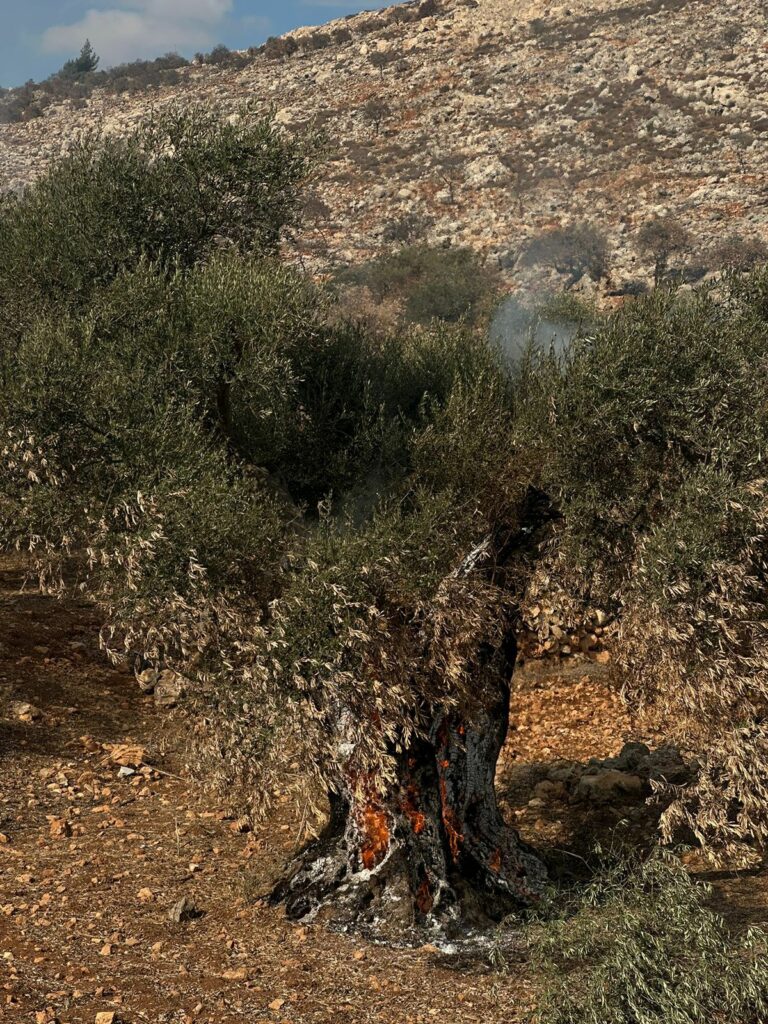
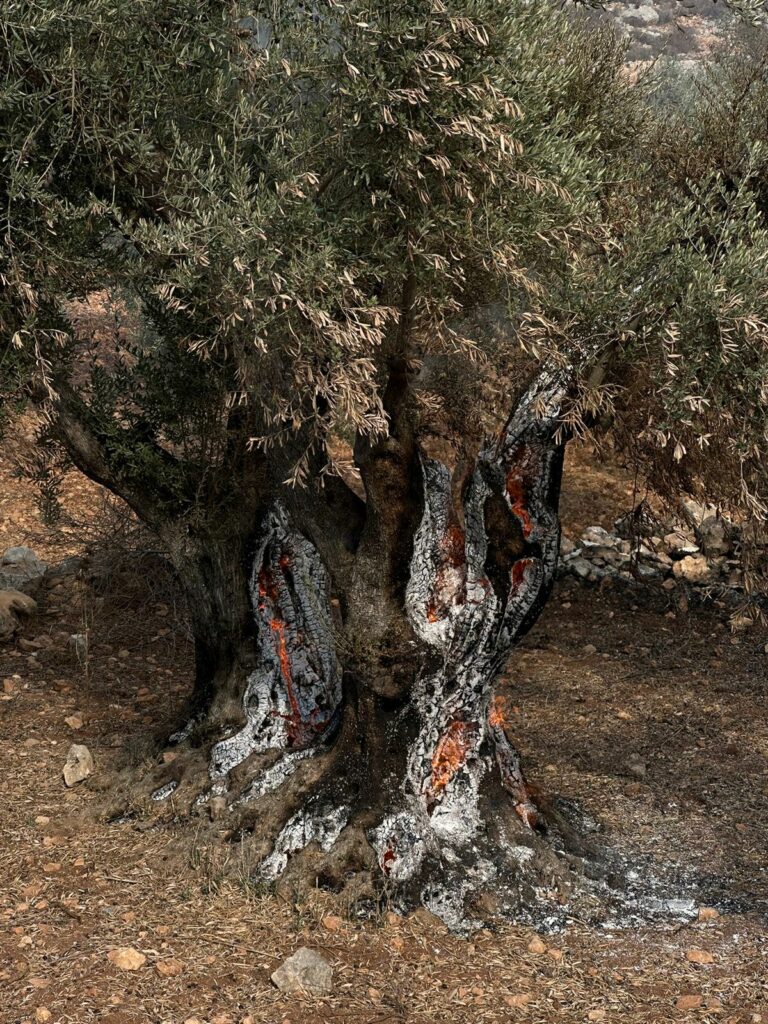
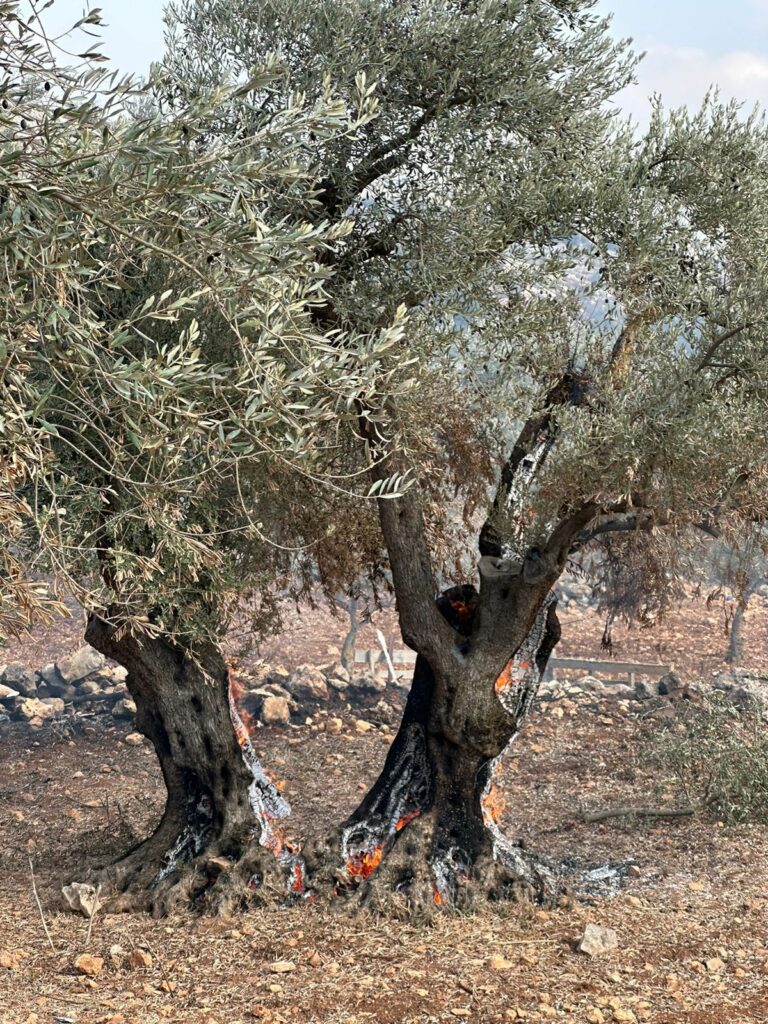
The agricultural sector, especially olive farming, which is one of the primary sources of income for many Palestinian families, is facing a significant threat after being subjected to brutal attacks and assaults for the second consecutive season. As Israeli official forces and its settler militias continue to harass farmers, destroy olive orchards, steal crops, and deny farmers access to their lands, they implement a systematic strategy aimed at depleting the livelihoods of Palestinian farmers. Olive farming, a symbol of Palestinian culture and resilience, is not only an economic resource but a vital part of the identity of many families, particularly in rural areas. As olive trees are uprooted, burned, or flooded with wastewater, the loss is not merely financial but represents a direct attack on the cultural heritage of Palestine
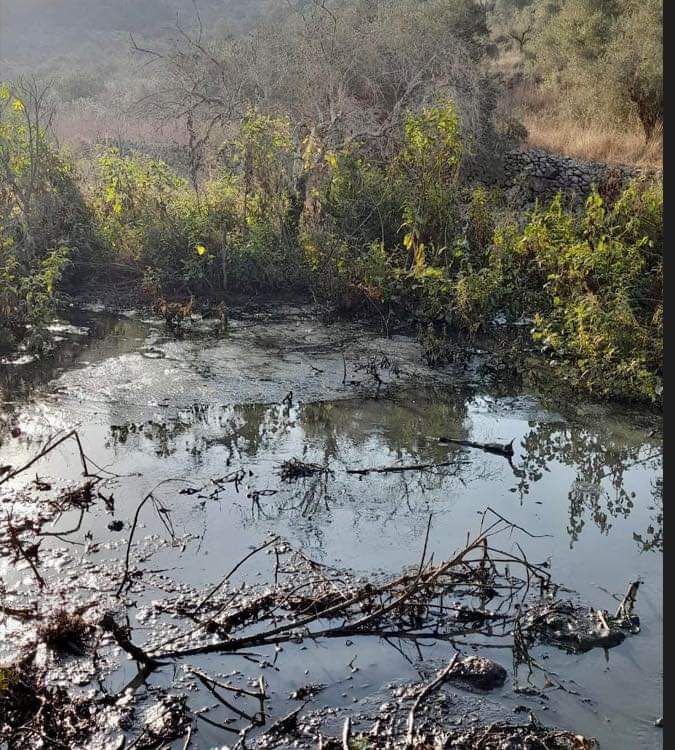
In another strategy to prevent farmers from accessing their lands, settlers from the settlements of Eli, Shilo, and Avva are deliberately pumping wastewater onto Palestinian farmlands in the towns of Haris, Qaryut, Turmus Aya, and Sinjil. The Israeli occupation deliberately floods agricultural lands with wastewater, which flows from the settlements on the hills, especially during the olive harvest season. This poses catastrophic consequences for the natural resources in these areas and others, which are being targeted by Israeli policies.
This is not the first time the occupation has used wastewater as a weapon against Palestinians. Valleys such as Wadi Qana in Salfit, Wadi Silo in Qaryut, and Wadi Al-Maghsel from the lands of Sinjil are continuously flooded with wastewater. The issue has become more severe, as discharging wastewater not only poses an environmental and economic threat but also contributes to Israel’s ongoing annexation of lands and the forced displacement of Palestinians.
Farmer Mahmoud Samara Kasab from the town of Qaryut is a direct victim, as wastewater flooded 25 mature and fruitful olive trees on his land. He is now unable to benefit from or even access them. Mahmoud Kasab even obtained a ruling from the Israeli High Court, asking the settlers to stop the discharge of wastewater onto his land. The case is indicative of the role of Israeli courts as an integral element of Israel’s apartheid regime: within the framework of the multi-layered system of oppression Palestinians are subjected to, its rulings merely give a façade of the rule of – a repressive, discriminatory apartheid – law, which itself is increasingly being bypassed. The current phase of repression and oppression has its own rules.
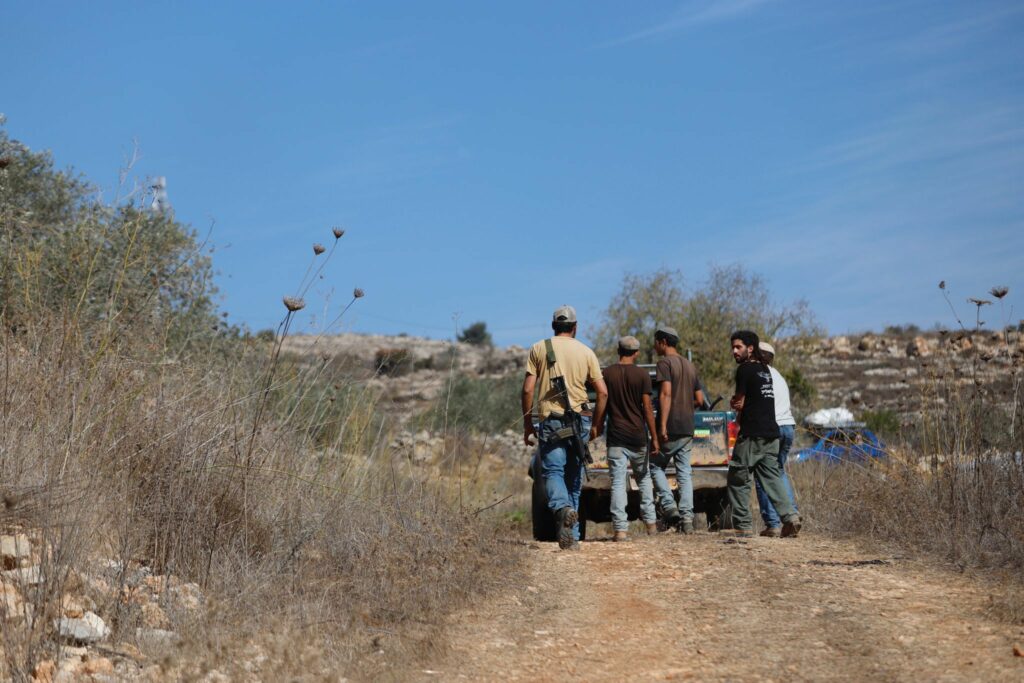
The situation continues to worsen, with the olive harvest season becoming a battleground for Palestinian farmers, who are struggling not only to protect their land and livelihoods but also to maintain their connection to their cultural roots and to uphold the very fabric of Palestinian society.

